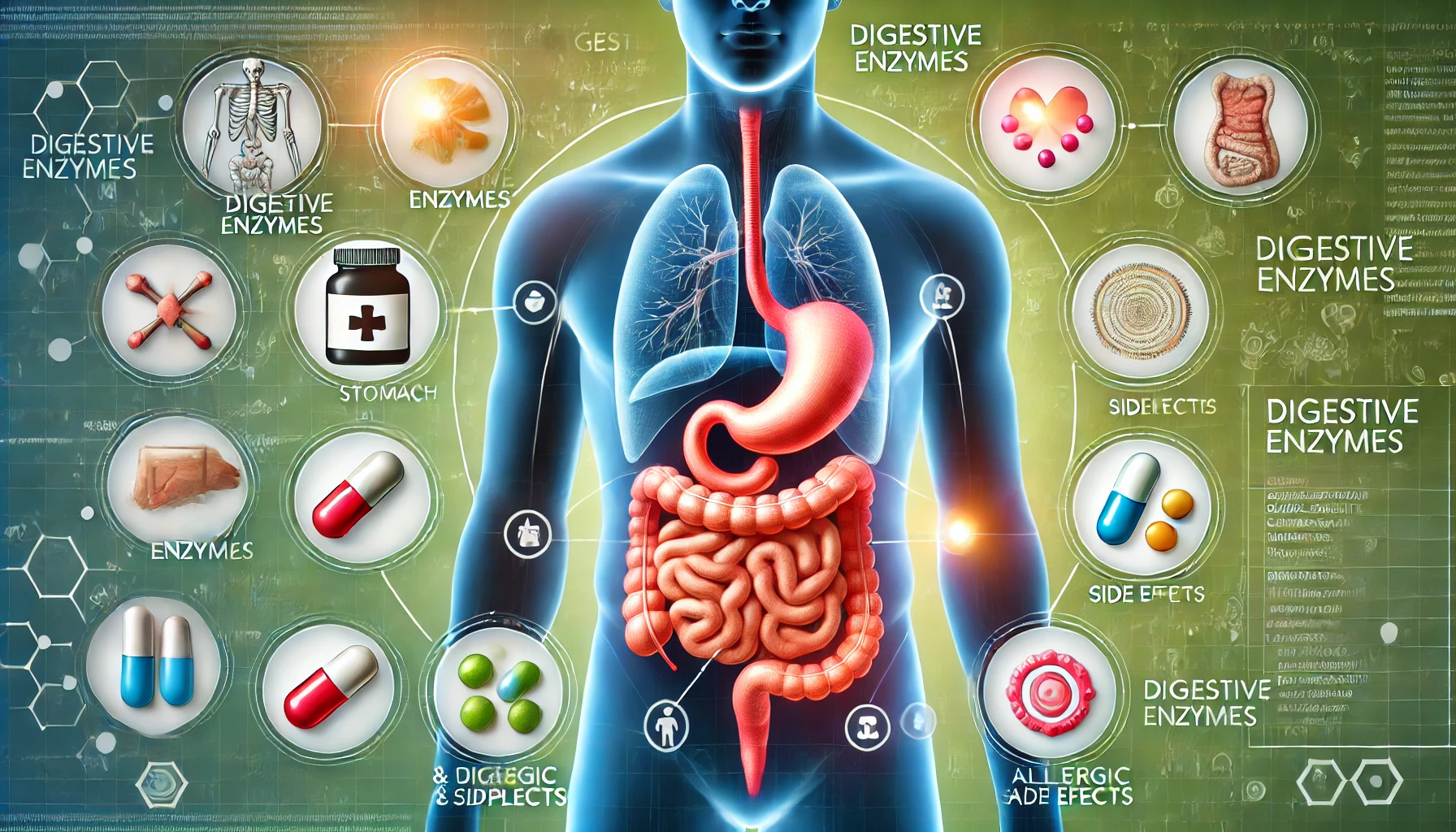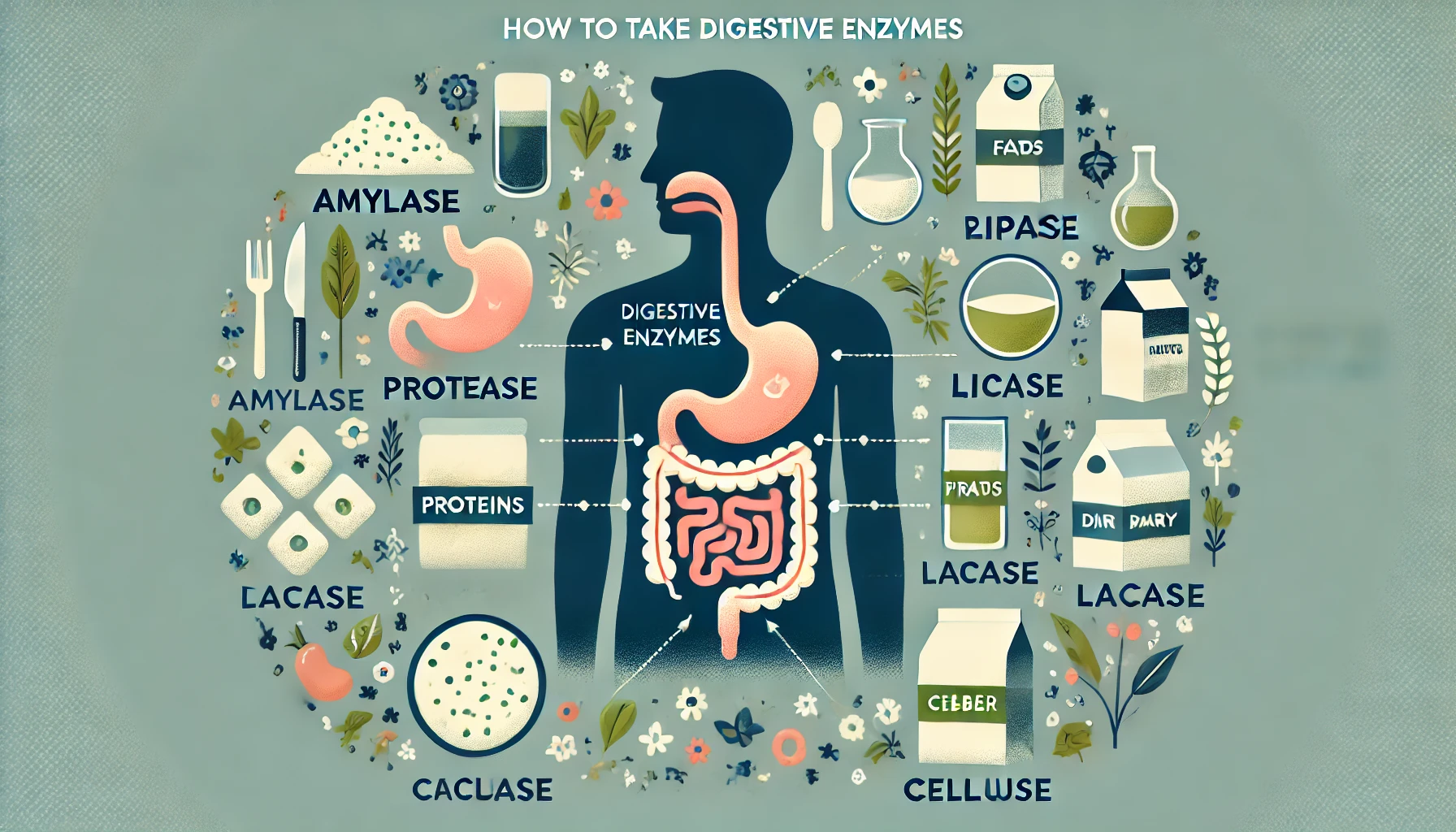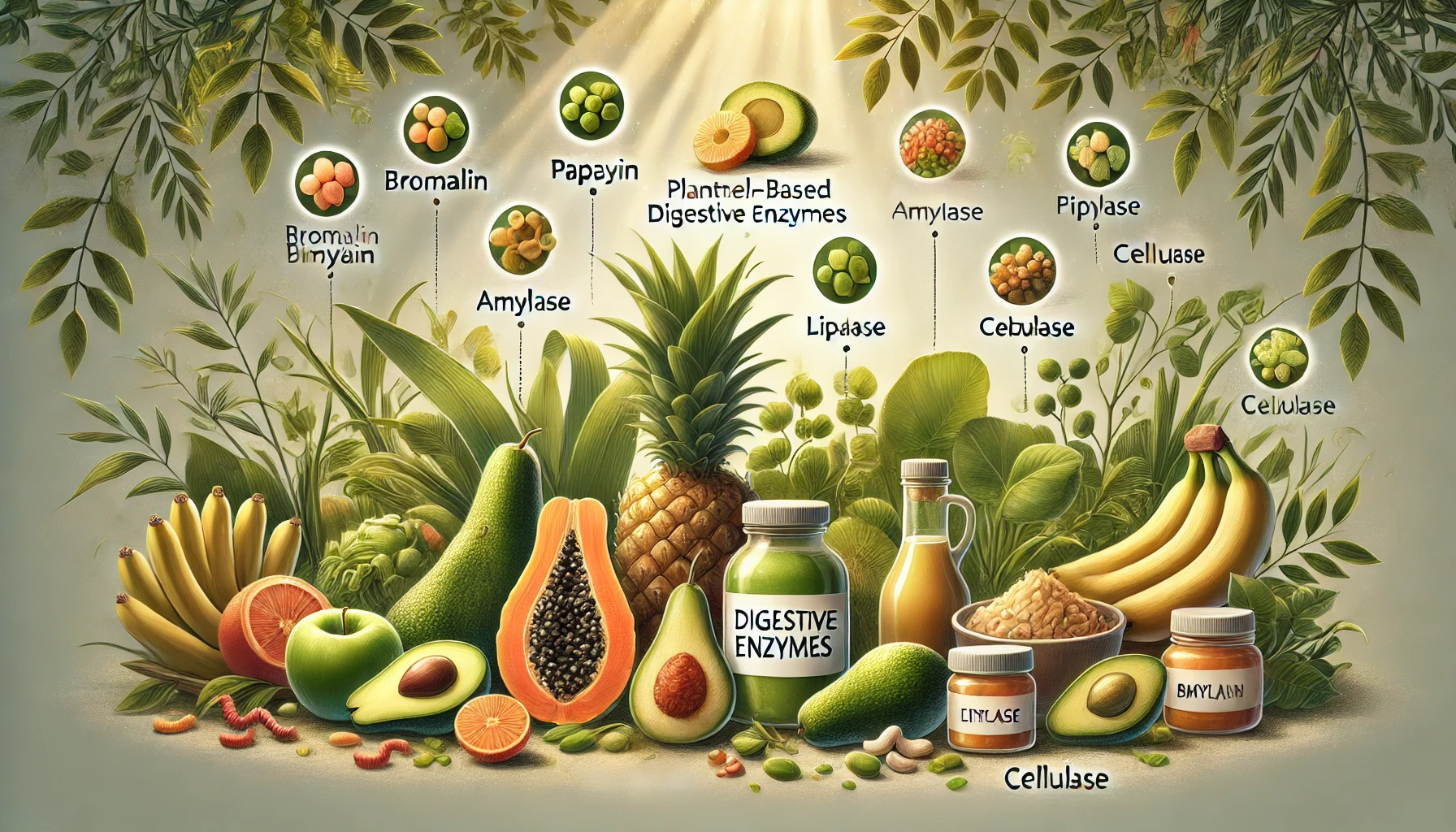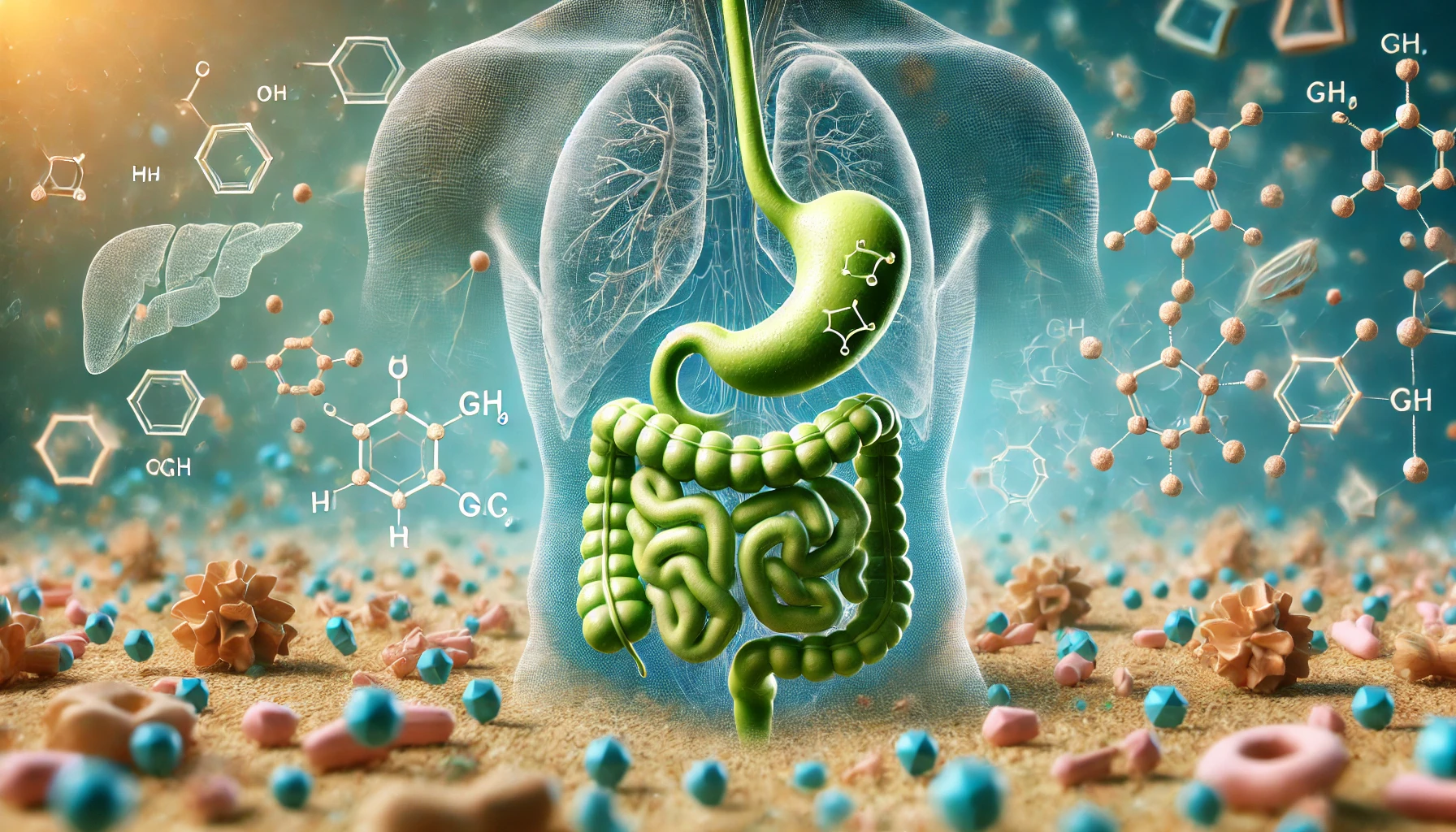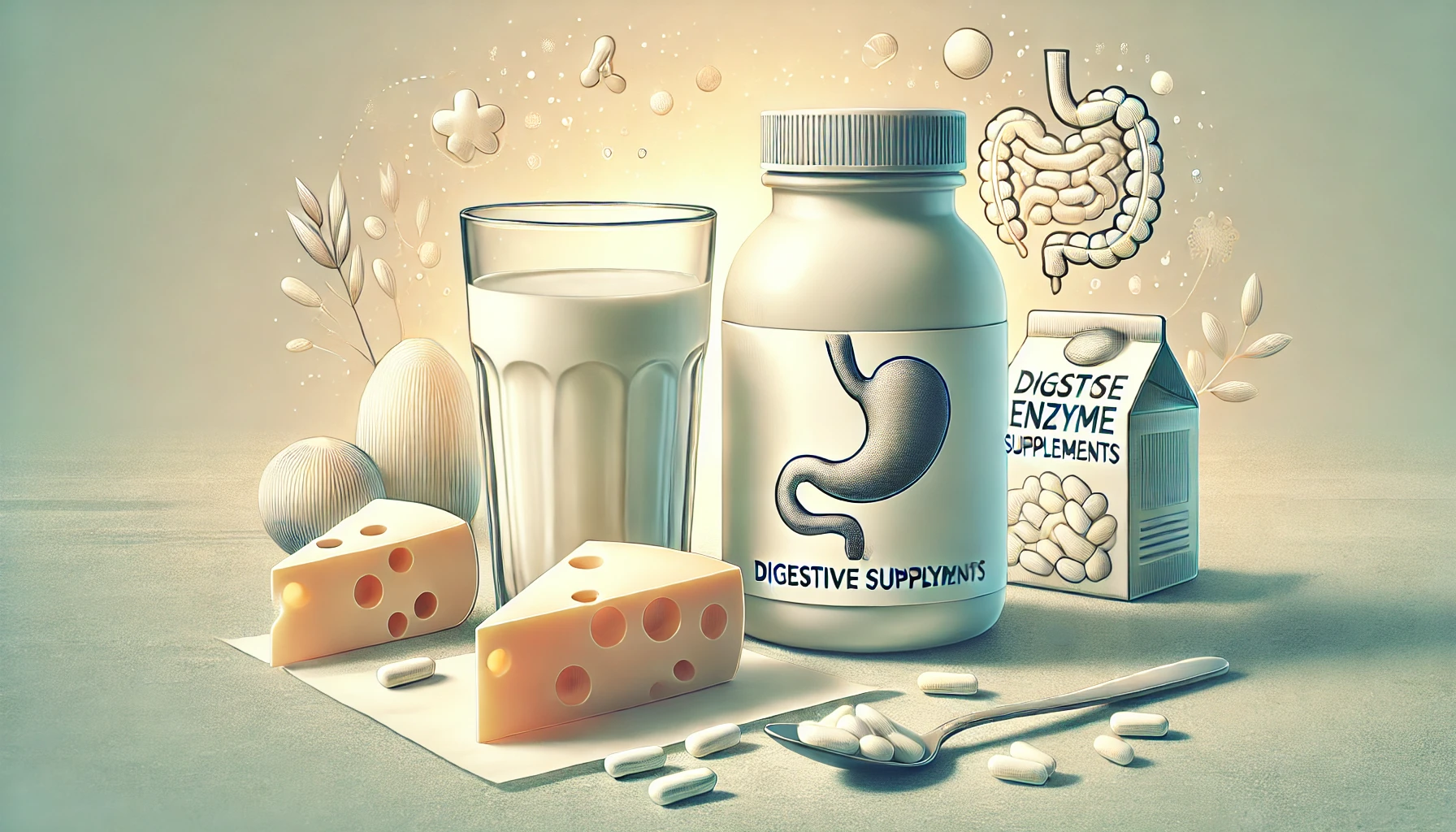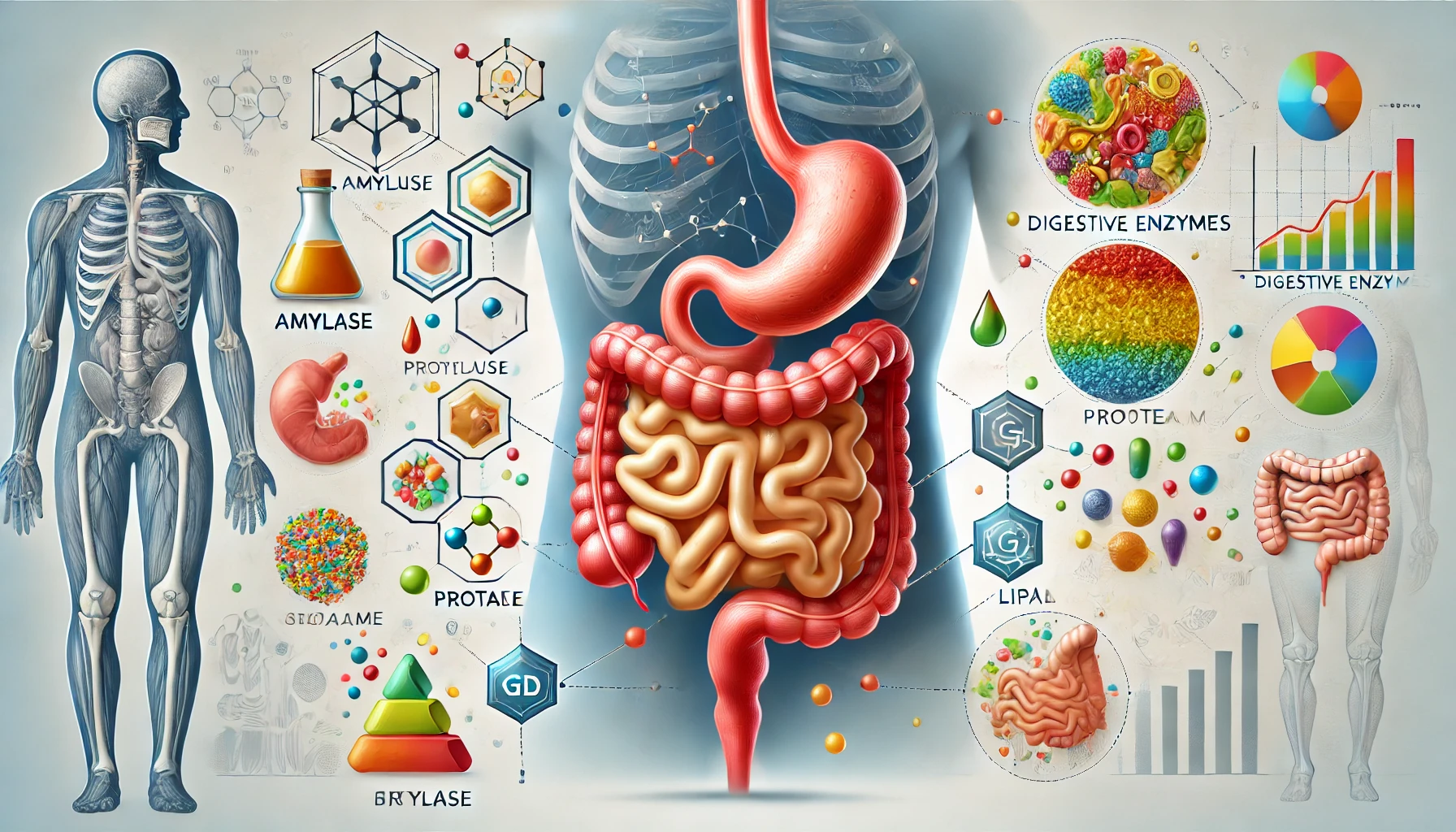Are you having trouble digesting food? Not getting enough nutrients? Frequent tummy issues?
If the answer to one or all of the above is ‘Yes’, then it’s time you looked into what’s troubling your digestive system. And more often than not, the answer may be digestive enzymes or probiotics!
The human digestive system works on an intricate balance between organs, enzymes, fluids, and live microorganisms to absorb nutrients and maintain health.
Digestion of food is a painstaking process and requires various enzymes that collaborate to breakdown food nutrients and help in their absorption.
Probiotics or good bacteria present in the digestive system help support the enzymes to maintain trouble-free digestive health and build a strong immune system.
So, why are digestive enzymes and probiotics so crucial for maintaining digestive health and wellbeing?
If this has kindled your curiosity, keep reading to understand more about digestive enzymes and their mechanism, probiotics, and their importance, similarities, and differences between digestive enzymes and probiotics, and their combined benefits.
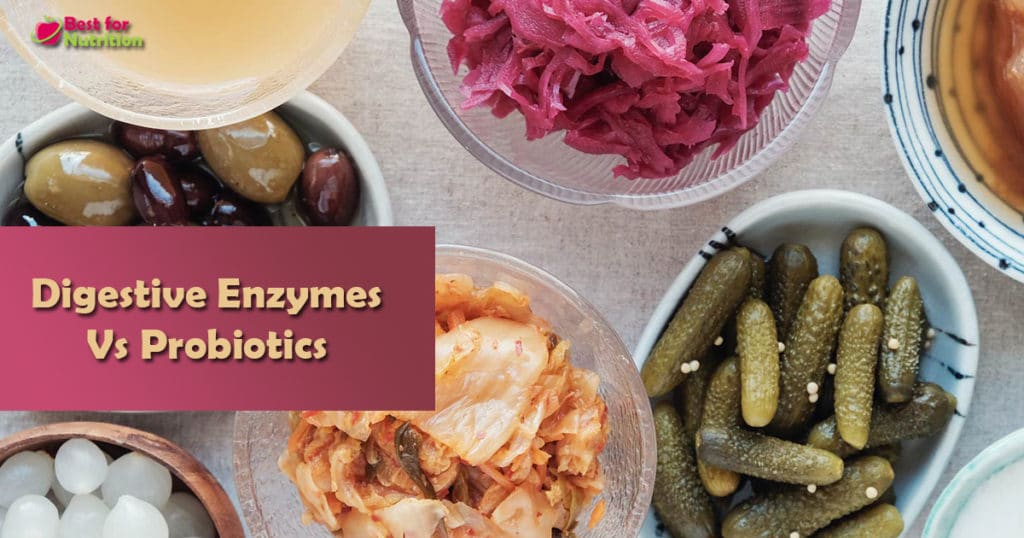
Digestive Enzymes: The Workers of the Digestive System
We always read or talk about the importance of eating nutritious food for a healthy body. But have you ever wondered about how the body separates the nutrition components such as proteins, fats, carbs, and absorbs them?
The answer is enzymes – the enthusiastic workers, without whom the digestion system is incomplete! Let’s learn a little more about them.
About Digestive Enzymes and their Working Mechanism
Digestive enzymes are microscopic proteins found in the human body. They are of different types, work on different foods, but all of them are essential to proper digestion.
The primary function of digestive enzymes is to break down food into smaller molecules for easy absorption into the bloodstream. Besides the digestive system, these enzymes are also important to sustain the body’s immunity.
The human body relies on essential nutrients that build up immunity to keep germs and diseases at bay. Insufficient breakdown of food means lower nutrients and in turn, reduced immunity.
Digestive enzymes are found in the mouth, stomach, and pancreas. Enzymes are designed and released to act accordingly on specific types of food to provide specific kinds of nutrients.
Enzymes help convert fats, carbs, and proteins into usable forms such as amino acids, simple sugars, cholesterol, fatty acids, and nucleic acids that are important for cell DNA.
Digestive enzymes are of many types, but there are 3 main ones each of which works on a particular category of food. They are (1):
- Amylases – Are important to break down the carbohydrates and starch present in food into simple sugars that the body can utilize as energy.
- Proteases – These enzymes break down the proteins present in food into amino acids for cell growth, repair, and maintenance of tissues.
- Lipases – These enzymes target fats, oils, and triglycerides in food and break them into cholesterol and essential fatty acids that are required for many functions in the body.
Other than the above there are many other enzymes such as lactase, trypsin, nuclease, etc., that are also essential for breaking down specific foods in the body.
A lack of even one enzyme can trigger gastrointestinal issues and disrupt the digestive system.
Summary: Digestive enzymes are proteins that break down food into smaller building blocks for better absorption and use by the body. Protease, lipase, and amylase enzymes act on specific nutrients and are vital for smooth digestion.
How Can We Get More Enzymes?
Deficiency of enzymes can arise due to factors such as environmental pollution, unhealthy processed foods, medical conditions, hereditary defects, age, and stress.
Enzyme deficits can be bridged by eating more enzyme-rich raw foods or by adding supplements to one’s daily diet. Since consuming natural foods is a more ideal option for wholesome nutrition, obtaining enzymes directly from foods can be a priority.
Listed are some of the best raw foods to get enzymes naturally.
- Fruits such as banana, mango, papaya, pineapple, avocado, and kiwi
- Ginger and wild mushrooms
- Pure honey
- Naturally fermented foods such as yogurt, kefir, miso (soybean with koji) paste, sauerkraut (fermented cabbage), and tempeh (soaked and cooked soybeans)
- Coconut water
Raw foods may have more active enzymes because cooking or processing can break down or destroy the enzymes.
Individuals who are unable to obtain enough enzymes from diet or have a lack of enzymes owing to medical conditions such as Exocrine Pancreatic Insufficiency (EPI) may be prescribed enzyme supplements by a practitioner (2).
Enzyme supplements that can be taken for general well being are available without a prescription. Specific enzymes or a combination of enzymes and probiotics can be taken before meals to aid in the digestive process.
Summary: Enzyme deficiency that occurs due to various factors can be bridged by including specific raw and fermented foods that are rich in active enzymes or by adding specific or combination supplements to one’s daily diet.
Probiotics: The Helpers of the Digestive System
The human body, especially the digestive system needs support from an unusual source to function effectively – live microorganisms! These are the essential probiotics that we are referring to.
Sounds gross? You would be surprised to know what they can do and how vital they are to our overall well being. Here’s more information about them.
About Probiotics
The gut alone harbors trillions of natural microbiota and hundreds of species among them. They are possibly the tiniest members of the human body (3).
Though they can be good and bad, probiotics are classified as helpful ones that keep the digestive system in balance.
Probiotics or the good bacteria are responsible for many functions including preventing the proliferation of pathogens that create diseases, fighting excess bad bacteria to maintain immunity, promoting digestion, and aiding in the synthesis of certain vitamins.
When you are low on probiotics, immunity becomes low and issues such as gas, bloating, Irritable Bowel Syndrome (IBS), eczema, etc. all surface easily.
Some of the main good bacteria types capable of providing various health benefits are: (4)
- Lactobacillus
- Bifidobacterium
- Saccharomyces
- Enterococcus
- Streptococcus
- Pediococcus
- Leuconostoc
- Bacillus
- Escherichia coli
These good bacteria fight the bad pathogens during an illness when they can spiral out of control, and help rebuild the immune system again.
Summary: Probiotics are types of good bacteria found naturally in the human body. Highly essential for digestive health, they serve various functions including fighting pathogens to maintain immunity and aid in vitamin synthesis.
How Does One Obtain More Probiotics?
The human body cannot manufacture probiotics on its own, hence, one has to create an environment for these good bacteria to grow properly. It can be obtained from daily diets or through the use of supplements.
Consumption of highly processed foods, the number of chemicals used for natural products, frequent intake of antibiotics, all contribute to the destruction of good bacteria resulting in malfunctions in the digestive system.
Probiotics like enzymes can be obtained from consuming the right kinds of foods. Some naturally fermented products contain plenty of probiotics and are listed as follows:
- Yogurt
- Buttermilk
- Cheese types such as Gouda, Cheddar, Parmesan, Swiss Cheese
- Kefir – milk fermented with kefir grains
- Kvass – a traditional fermented beverage usually made from rye bread
- Miso or soy sauce
- Sauerkraut
- Kombucha – fermented and sweetened green tea
Available as capsules, liquids, powders, and fermented drinks, probiotics can do a world of good when taken in the form of supplements.
Probiotics start working rapidly and whether you want to take them to recover from a medical condition such as diarrhea when the gut flora has to be balanced or to improve digestion, supplements may be a good option.
Summary: Probiotics can be obtained through the consumption of fermented foods in our daily diet. They can also be taken as supplements that may be effective to promote digestion or recover quickly from medical conditions.
Similarities and Differences Between Digestive Enzymes and Probiotics
Enzymes and probiotics are both essential for proper digestion of food but they are different from each other and perform different functions too.
The primary differences between enzymes and probiotics are:
- Enzymes are classified as bioactive proteins that assist in the breakdown of food while probiotics are live bacterial organisms that reside in our gut and affect physiological processes.
- There are thousands of enzymes in the body while these good bacterias are in trillions. Interestingly they outnumber even the number of cells present in our body.
- Enzymes are produced naturally by the body, but probiotics can be obtained only through diet or supplements.
- Enzymes can be produced by probiotics but it does not work vice-versa.
They are similar, as both:
- Are essential for digestive health
- Support and enhance the immune system
- Can be affected by factors such as stress, age, and medications
- Can be obtained through daily diets
- Are available in the form of supplements
Summary: Digestive enzymes and probiotics can share similarities but are very different from each other in nature and functions, and need to be in balance to support optimal intestinal health.
Benefits of Taking Digestive Enzymes and Probiotics Together
Though probiotics and enzymes are different, they share a close relationship and complement each other. They work in synergy to provide a positive outcome and double the benefit. For this very reason, many supplements contain both of them for better digestive well being.
Some of the main benefits of taking digestive enzymes and probiotics together are given below:
Improved Digestive Power and Gut Health
The most-valued benefit of taking enzymes and probiotics is that of gaining optimal digestive power and immunity. When the gut functions smoothly and is trouble-free, it improves your overall well being.
Supplementation of digestive enzymes ensures better digestion of food, more nutrition from food resulting in a healthy body. Additional probiotics help in lowering intestinal pH, the proliferation of good bacteria that can help recover from illness quickly and increase natural immunity in the body (5).
Increased Absorption of Nutrients
We know that the body requires enzymes to break down food into smaller molecules for better nutrient absorption.
Different kinds of food require different kinds of enzymes and sometimes a combination of enzymes to do the job efficiently. A lack of even one enzyme can affect this process.
Probiotics are capable of producing certain vital enzymes that aid the digestive process. For example, Lactobacillus bacterium produces lactase enzymes and can further aid in better assimilation of lactose. This can be particularly helpful to people who are lactose-intolerant (6).
The same happens in the digestion of fibers. There are certain fibers that can’t be digested by the human body as we do not contain the required enzyme needed.
However, good bacteria such as Bifidobacterium can work on the fiber and help us digest it. This also helps prevent infection and produce certain vitamins.
Therefore, a combination of digestive enzymes and probiotics can help keep the digestion process smooth and result in maximized absorption of vital nutrients.
Lowers Intolerance to Food
Food intolerance occurs when the body cannot digest certain kinds of food. One of the reasons can be due to insufficient or a complete absence of a particular enzyme. Classic examples are people with low lactase enzymes who show lactose intolerance present in dairy products.
Ingesting foods or supplements with lactase enzymes and added probiotics, that secretes lactase ensure a constant flow of this enzyme that may help reduce lactose intolerance and promote better digestion of dairy-based food products (7).
If the supplementation of enzymes and probiotics are plant-based, the chances of dependency are less as it is healthy and natural. And the best part is that there are no unpleasant side-effects to be afraid of.
Aids in Cholesterol Maintenance
Digestive enzymes and probiotics not only take care of your digestive system and immunity but are also effective in maintaining healthy cholesterol levels. High cholesterol is unhealthy and is a serious marker to measure the risk of heart diseases.
Probiotics are known to regulate cholesterol levels by fermenting indigestible carbohydrates to get short-chain fatty acids that can result in lower blood lipid levels. The enzyme lipase acts by breaking down fats for digestion and is important for the balance of cholesterol levels (8), (9).
Studies have shown that a supplement of probiotics and digestive enzymes was proven effective to reduce bad cholesterol (LDL) while uplifting good cholesterol (HDL) levels in the body (10).
Thus, a combined supplement of these two will go a long way in maintaining good heart health.
Summary: Digestive enzymes and probiotics may be beneficial when taken together. When combined, they can improve digestion, aid in better absorption of nutrients, lower food intolerance, and maintain good cholesterol levels.
Frequently Asked Questions (FAQs)
How are Digestive Enzymes Different From Metabolic Enzymes?
The human body produces both digestive and metabolic enzymes which are crucial to our body functioning and well-being.
While digestive enzymes are necessary for digestion and nutrient absorption, metabolic enzymes are required for overall cellular functions.
Metabolic enzymes aid in chemical reactions necessary for detoxification and energy production. They are the reason why the cells can help us see, feel, hear, move, and even think. Digestive enzymes react with food, break them down, provide energy for all the cells to support metabolic functions.
When Should One Consider Taking Digestive Enzymes and Probiotics?
If you don’t get sufficient enzymes and probiotics from your daily diet it may be best to consider including supplements.
Taking supplements with enzymes may work better when they are consumed just before food. This enables the enzymes to react with food and start the process of breaking down food for digestion.
Probiotics also work better when taken with meals as they can survive the stomach acids owing to the presence of food and work more effectively.
Do I Need a Practitioner’s Prescription to Buy Digestive Enzymes and Probiotics Supplement?
Enzyme and probiotic supplements are available without a prescription. If you do have a specific medical condition for which you seek these supplements, then it is better to get your practitioner to recommend an appropriate supplement.
Also if you are taking prescribed medications, or are pregnant, then you should consider seeking a doctor’s advice before using any natural supplement.
How Can I Choose the Right Supplement for Digestive Enzymes and Probiotics?
When you are looking for a probiotic supplement, you should ensure that the quantity of probiotics is in several billion rather than just millions. Also, it is beneficial to have multiple strains of bacteria as each has different functions This is necessary to make sure that a good colony of bacteria survives the stomach acids to flourish in colony-forming units (CFUs).
Digestive enzyme supplements should have multiple enzymes to target various kinds of food to provide complete benefits.
Also, plant-based enzymes are more stable, withstand stomach acids better, and suitable for everyone including vegans. Enzyme supplements should be chosen based on their activity and potency for maximum efficiency.
The Final Note
The human body requires the support of digestive enzymes and probiotics to maintain a free-flowing digestive system.
While digestive enzymes help in breaking down food into different nutrients for better absorption, probiotics help maintain a balance in the gut flora to promote digestion and strengthen your immunity.
Enzymes and probiotics can share some similarities but are different in the way they function. Taking enzymes or probiotics can depend on the condition for which you may need them.
While each has its benefits, a combination of both can enhance digestion, promote nutrient absorption, and build better immunity.
If you are facing problems with your digestive system, then maybe it’s time you considered a supplement that has beneficial enzymes and/or probiotics for getting double the benefits!
